Photographs: Dipak Chakraborty
Once, their presence at an auspicious ceremony was unimaginable as they were believed to bring bad luck to the festivities.
Today, thanks to an NGO and some Durga Puja organisers in Kolkata, widows from an ashram in Vrindavan will spend the most special Pujo of their lives, in a rain-swept city with a large heart, discovers Indrani Roy.
Amidst the din, in a quiet corner, sits Lolita Adhikari -- no less than 107 years old -- clad in a white dhoti, folded-up knees caressing her wrinkled chin.
Mostly wheelchair-bound these days, she is hard of hearing and cannot speak much. She has had a cataract operation only a week ago.
From behind a pair of dark surgery glasses, her eyes intensely observes what her friends from the ashram are up to.
"Her son had come to the airport and begged her to visit their home in Kolkata," says Vinita Verma who has coordinated the visit of 50 widows from Vrindavan to attend the Durga Pujo festival in Kolkata.
"But she got angry and made it very clear that she would love to spend Durga Pujo with her friends from the ashram. This is but natural for someone who has spent more than 50 years at a Vrindavan ashram."
Please click NEXT for more...
A ray of Vrindavan sun lights up Kolkata's rainy Pujo
Image: Vinita Verma, who is coordinating the Vrinadavan ashramites's visit.Photographs: Dipak Chakraborty
Durga Pujo in Kolkata this year is destined to be different.
Some organisers are improvising hard to prevent the pandals from getting soaked in the rain.
However rainy, the annual festival is sure to bring light into the lives of 50-odd elderly women from Vrindavan.
Thanks to an initiative by Sulabh International, these women, all hailing from Bengal, will participate in Durga Pujo after years.
Fifty women, mostly widows, from four ashrams of Vrindavan flew to Kolkata on Sunday to inaugurate the Pally Mangal Samity Durga pujo at Jodhpur Park.
The Pujo organisers sent special invites to Sulabh International, throwing age-old conventions to the wind. Special care will be taken so that pandal-hopping gets easier for them.
Please click NEXT for more...
A ray of Vrindavan sun lights up Kolkata's rainy Pujo
Image: A member of the ashram holds an idol of Lord Gopal.Photographs: Dipak Chakraborty
Taking a cue from Jodhpur Park, organisers at the Salt Lake FE block and Hindustan Park pandals have also invited the widows to grace their Pujo pandals during the festivities.
At a south Kolkata guest house on Monday, coordinator Vinita Verma guides us to one of the rooms. There, a group is busy making post-breakfast preparations for a press conference scheduled for that afternoon. Each discussion is punctuated by an intoxicating chorus of Radhe Radhe .
Please click NEXT for more...
A ray of Vrindavan sun lights up Kolkata's rainy Pujo
Image: Basana Dasi, who Kunjaleela Dasi has adopted.Photographs: Dipak Chakraborty
Kunjaleela Dasi, a native of Bangladesh, has lived in Vrindavan for eight years.
"Before Sulabh started helping us," she says of the NGO Sulabh International, "we used to earn Rs 5 a day. We would sing bhajans and live on what we earned as alms."
"Life is a lot better now," she adds. "We get a monthly stipend of Rs 2,000, sing bhajans for four hours a day, get lessons in English, Hindi, Bengali and also in sewing and embroidery."
Sulabh trains the ashramites to make incense sticks, garlands made of Tulsi stems and small wallets.
Kunjaleela recently adopted a daughter, a much younger ashram member, Basana Dasi.
Please click NEXT for more...
A ray of Vrindavan sun lights up Kolkata's rainy Pujo
Image: Kunjaleena Dasi (in saffron) and her adopted daughter, Basana Dasi (in saffron and black) with other ashramites.Photographs: Dipak Chakraborty
Basana Dasi got a degree in homeopathy at a Bangladesh college before political disturbances forced her to cross the border.
Kunjaleela heard about her from acquaintances and got her to Vrindavan.
Basana Dasi is now the ashram's resident 'doctor'. "She is good with medicines and they are very effective treating minor ailments," says Kunjaleela. Unlike the other ashramites, both Kunjaleela Dasi and Basana Dasi have not been married.
Please click NEXT for more...
A ray of Vrindavan sun lights up Kolkata's rainy Pujo
Image: Kamala Chakroborty, an ashramite.Photographs: Dipak Chakraborty
Maya Pal is not only wearing a sari with a red border; she also sports a sindoor.
"I am from Borishal in Bangladesh. My husband worked in the military," she says.
"During a riot in 1964, my husband went missing. Till date, there is no news of him. I am still carrying the signs of a married woman though any hopes of finding him died a long time ago."
Pal lost her only son in the riot and crossed over to take shelter in a refugee camp with her daughters.
"With two daughters -- one an infant and another only 8 years old -- I took up a job in an export factory in Delhi."
"By pinching pennies, I educated my daughters and married them off. Once they were settled, I headed for Vrindavan. I have been living there for seven years."
Though her daughters are in touch with her, Pal does not want to live with them. "I don't want to be a burden," she says.
Please click NEXT for more...
A ray of Vrindavan sun lights up Kolkata's rainy Pujo
Image: Members of the ashram sing a song.Photographs: Dipak Chakraborty
Nanibala Halder hails from Khulna in Bangladesh.
When she lost her husband a few years after marriage, a relative brought her to Kolkata where she worked in many houses as a maid to fend for herself and four young daughters.
Now that they are married, Halder is happy in her Vrindavan 'home'.
"I am in touch with my daughters," she says. "I visit them once in a while, but I don't want to leave Vrindavan. Life has never been so peaceful."
Please click NEXT for more...
A ray of Vrindavan sun lights up Kolkata's rainy Pujo
Image: Nilima Datta, second from left.Photographs: Dipak Chakraborty
Nilima Datta lost her husband when she was just 19. She has an elder sister in South Dinajpur whom she visits once a year.
"My husband worked in the railways. I made arrangements so that my brother-in-law's son could get the railway job after my husband's death, but my in-laws did not want to take care of me. I was left with no option but to head for Vrindavan."
"Thank God I made that choice. Though life was extremely tortuous initially, I am in great comfort and peace now. May God bless Pathakji," she says.
The widows of Vrindavan used to lead a miserable life till Sulabh International and its founder Bindeshwar Pathak stepped in after the Supreme Court directed the National Legal Service Authority last year to seek Sulabh's help to ensure the widows's proper rehabilitation.
Sulabh ensures that the women get a monthly stipend of Rs 2,000 and has also arranged for healthcare and recreation facilities for them.
Sulabh International now takes care of over 1,000 widows in Vrindavan and Varanasi, besides supporting widows of this year's Uttarakhand disaster.
...

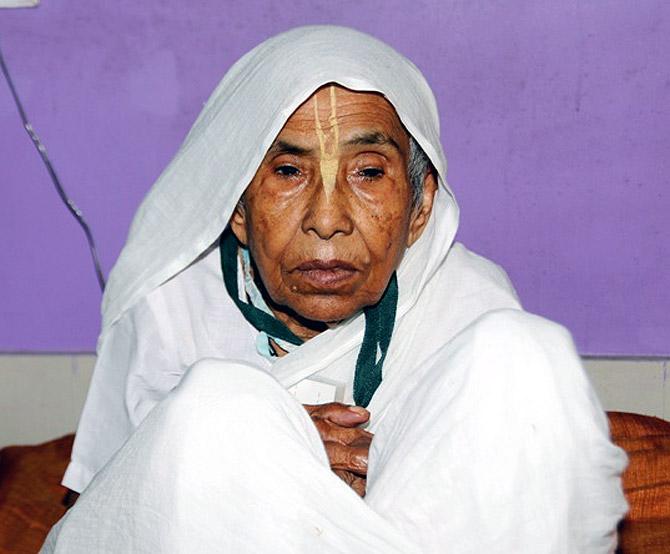
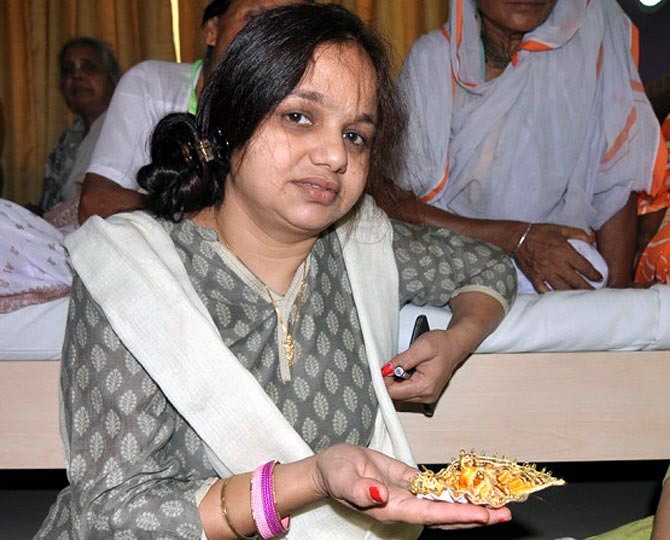
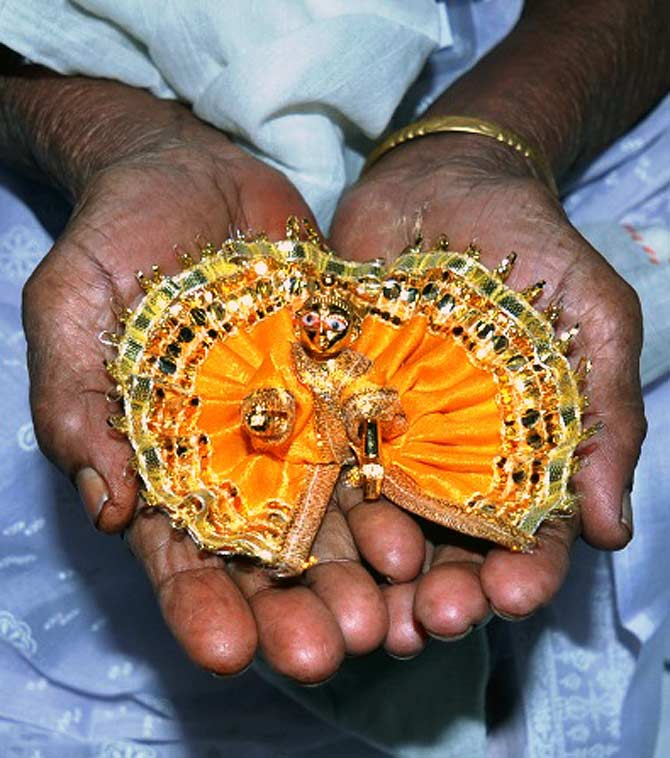
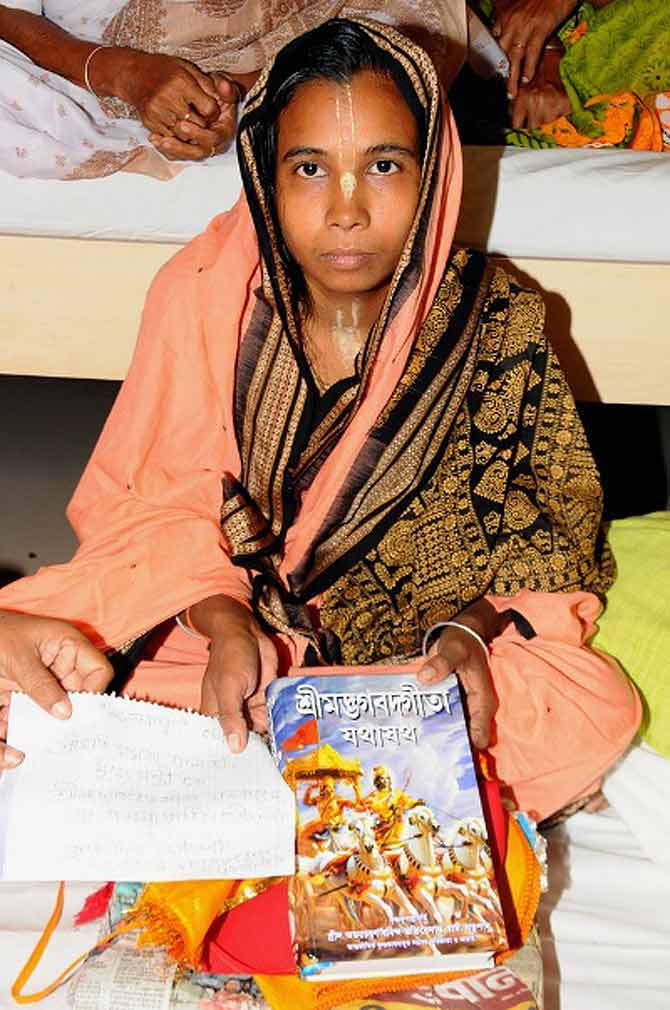
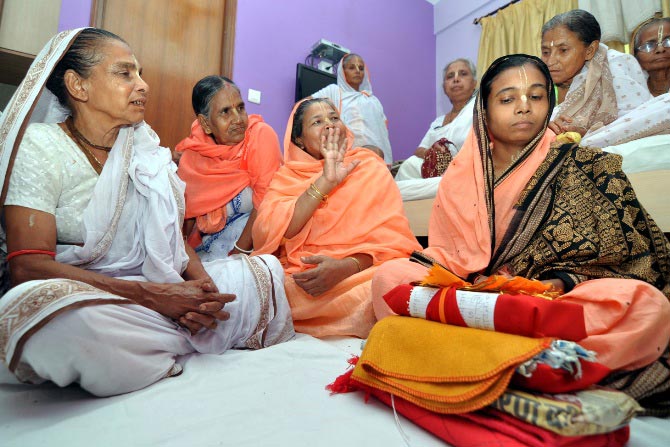
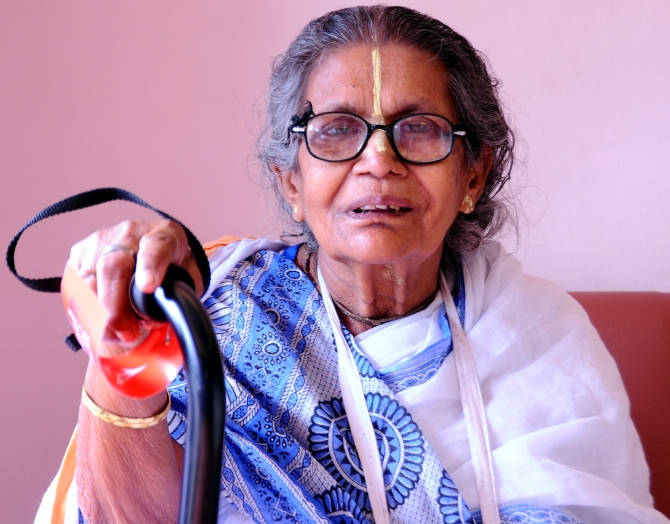
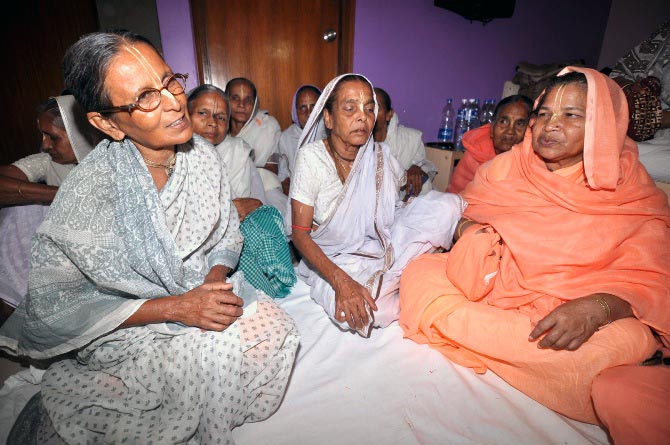
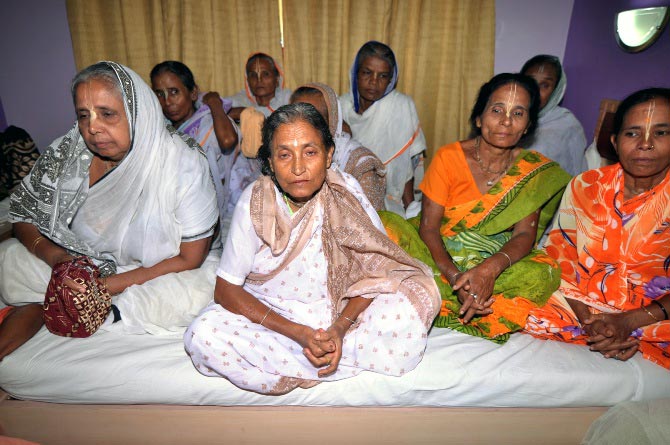
article